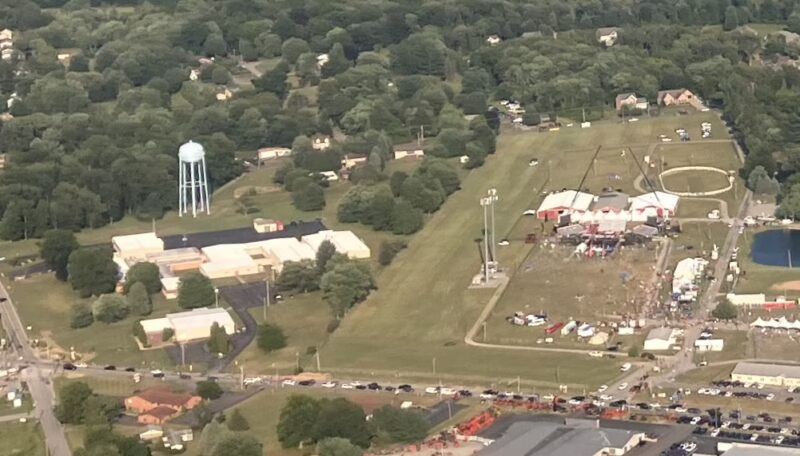It’s hard to believe how much worse things have gotten since I wrote just two weeks ago asking how we can celebrate July 4th when everything sucks… and yet.
I’m going to be blunt with you: The attempted assassination of former President Donald Trump on Saturday has left me deeply shaken. I am pleased that he is doing well and that the would-be assassin was quickly neutralized. I am horrified, however, at how close the gunman came to succeeding and expect a full investigation into the security failures at the Trump rally. My heart goes out to those injured and to the loved ones of Corey Comperatore, who was killed shielding his family.
Bullets fired in service of a political agenda don’t just rend flesh and bone. They tear at the fabric of our social contract. Political violence takes power away from the people—the very essence of democracy—and puts it in the hands of an unaccountable mob.
This assassination attempt risks serious harm to our democracy, even as former President Trump mercifully escaped with only minor injuries. The injection of bloodshed into our politics empowers demagogues who need only the thinnest of pretexts to call for witch hunts, target “undesirables,” demand restrictions on our freedoms, and silence dissent—as Republican vice presidential nominee J.D. Vance did in his irresponsible tweet following the shooting. Any attempt to resolve political differences outside of established processes in free countries energizes conspiracy theorists and propagandists all too eager to discredit our institutions. Only the agents of chaos win when we throw out the rulebook.
To say that the political temperature was already high before this weekend would be a massive understatement. There will be dark, challenging days ahead for our nation. But we can come out of this experience stronger and more resilient—Americans have persevered under grave circumstances before.
In order to make that happen, we need to recommit to the values that have long underpinned our republic. Democracy isn’t just a system of government; it’s a responsibility, an active choice on the part of every citizen to respect our neighbors even when the stakes are high and our disagreements go beyond mere differences of opinion.
Part of that responsibility is also an imperative to speak the truth, even when it is uncomfortable, and especially when it implicates your political camp. The riots following George Floyd’s murder, the shooting at the 2017 Republican congressional baseball game–which critically injured six people, including Rep. Steve Scalise–and Senator Chuck Schumer’s threat that conservative Supreme Court justices “would pay the price” were all symptoms of an unhealthy political environment.
Yet speaking the truth also means eschewing false equivalences. The examples I’ve cited above are real and dangerous. But even though some political leaders and parts of the media did excuse elements of the 2020 riots, the rioters themselves had little real support at the highest levels of the Democratic Party. The baseball game shooter—a former Bernie Sanders campaign worker—was loudly and unequivocally disavowed by the Vermont senator the day of the attack. And Schumer walked back from his inappropriate remarks.
Contrast this with the context of political violence on the far-right. The Charlottesville Unite the Right rally, the vicious attack against Nancy Pelosi’s husband Paul, and the January 6 insurrection and accompanying calls to hang Mike Pence were not outliers. In each instance, President Trump or his followers have either incited the perpetrators, dog whistled, or made the victims the butt of callous jokes. Imagine, for a moment, that President Biden had used his Oval Office address last night to ask for thanks from Trump—this is how President Trump himself responded when extreme right militants tried to kidnap Governor Gretchen Whitmer. The Michigan governor, Trump tweeted after the FBI foiled the kidnapping plot, “has done a terrible job.” “Rather than say thank you, she calls me a White Supremacist.”
Just as Saturday’s tragedy cannot be justified by anything Trump has said or done, it also should not obscure his anti-democratic rhetoric. Nevertheless, in an open society like America, Trump’s actions can only be addressed through our free press, at the ballot box, and—when appropriate—via the courts.
We at the Renew Democracy Initiative are holding ourselves accountable. On a personal note, I’m committing to engaging with those who see these events differently from me on both sides of the aisle. I want to understand your concerns and perhaps explain mine. We are in this together, through November and beyond.
All the best,
Uriel Epshtein
![]()
CEO, Renew Democracy Initiative



